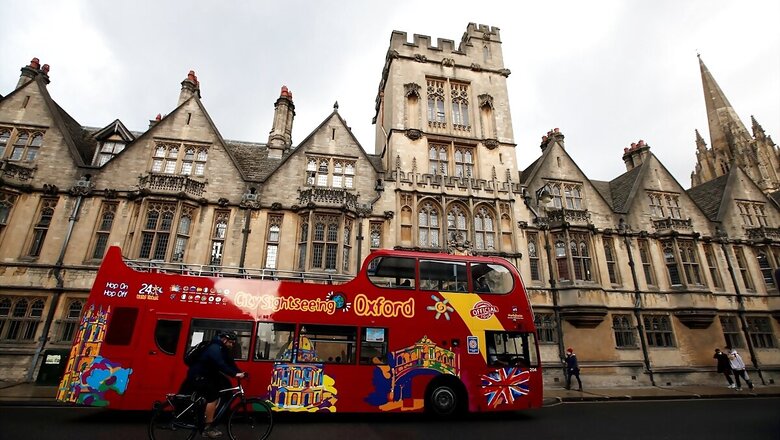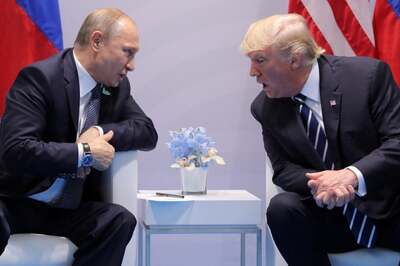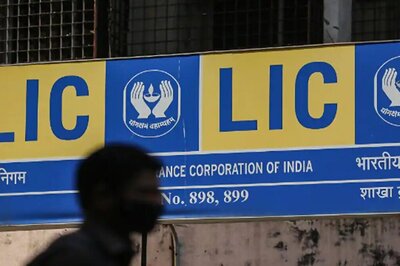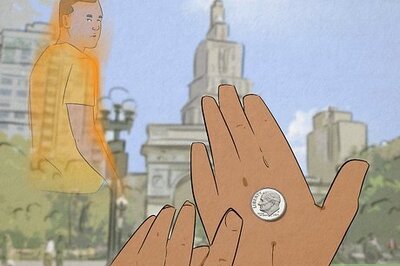
views
Indian Groups Write to Boris Johnson: As many as 119 Indian organisations have jointly signed a petition addressed to Prime Minister Boris Johnson over “hatred and bigoted views” of a senior faculty member at Oxford University. The organisations coming together under the umbrella group India Diaspora UK hold the university administration responsible. The protest arises over the case of Rashmi Sawant, who became the first Indian woman to be elected president of the Oxford University Students Union. Within a few days of her election she was forced to quit, the group says, because of “distant past social media posts for which she sincerely apologised.” But she has since been hounded by “hate-filled trolls on social media against her which led her to go into hiding and finally leave the country.” This led further to severe depression and hospitalisation, the group says. The group is demanding action from the university and the police over what it terms hate crimes against Rashmi Sawant.
UK’s Hefty Fine for Non-Essential Trips: UK’s Covid fine for travellers: It’s easier these days to go to Britain than to leave it. While seats are available on the limited number of flights to India or elsewhere, there is currently a 5,000 pound fine if a traveller cannot prove a good reason for travel. The fine is intended to discourage non-essential trips, or people travelling to a Covid heavy area and then returning with a new strain. But there are fewer restrictions on a valid reason for people coming into Britain. About 20,000 are coming to the UK daily; the low Covid prevalence and an opening up of shops from next week is an attraction to get away from lockdown elsewhere. Quarantine and mandatory testing are required, but there are no fines for coming in as there are for going out. Covid could, of course, come in either way.
Notice to India’s Serum Insitute Creates More Friction: A legal notice served on the Serum Institute of India by AstraZeneca over delayed supply of vaccines has created new frictions between companies and countries. The SII finds itself caught between national demand in India and its contractual obligations on the other. The Indian government has limited the export of the AstraZeneca vaccine on the grounds that India needs to contain a fast-spreading wave of the virus. But other countries have their waves, and the SII has supply commitments to several countries that are now held up. These countries are now waving the contract at SII. India is currently being spoken of as the “pharmacy of the world” with less adulation.
UK’s Covid Variant Spreads Across Country: India is paying the price now for a simple but massive error in December over its delay in halting flights from the UK. Several European countries banned travellers from the UK immediately after the UK variant of the virus was discovered. That variant is known to spread far faster than the earlier strain. India delayed a ban on flights by three critical days. Through those days a few thousand travellers from the UK arrived in India. Soon cases of the UK variant began surfacing in ones and twos here and there. Before anyone knew it, or could control it, they spread across the country. It was always known they would if a timely halt was not called. Now the UK variant makes up a great majority of the cases in Punjab and several other areas. Health Minister Harsh Vardhan had in December advised people not to panic over what he called imaginary fears. Few would consider the present fears to be imaginary.
British Gurkha Ex-Servicemen Plan Legal Action: A number of British Gurkha ex-servicemen are planning legal action to seek better pension than what the British government is paying them. Pension for retired Gurkhas from the British army is far less than that paid to other retiring service personnel. Following prolonged protests, their pension was raised 2.93 percent this month. But that still keeps them far below the pension offered to others. The British Gurkha Satyagraha United Struggle Committee UK-Nepal said in a press statement, “As per the Tripartite Agreement of 9 November 1947, the Gurkha soldiers were an integral part of the parent army and meant to be treated equally with their British counterparts.”
Read all the Latest News, Breaking News and Coronavirus News here. Follow us on Facebook, Twitter and Telegram.



















Comments
0 comment